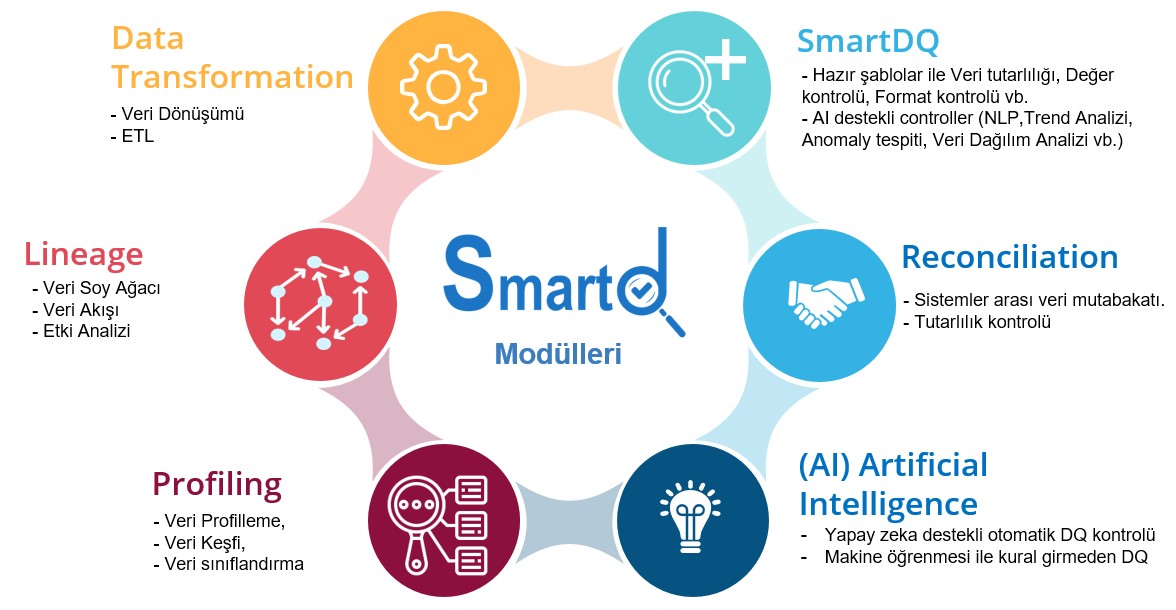


Hazır DQ Şablonları ile DQ Kuralını çok kolay bir şekilde tanımlayabilirsiniz.
AI Definition ile operasyonel yükü azaltabilir ve kaliteyi artırabilirsiniz.

Kalite Kontrol sonuçları puanlanır ve öncelik tanımı sağlanır.

Büyük veriler için veriler parametrik olarak küçültülebilir.


Kendi Zamanlayıcısı ile kontroller herhangi bir zamanda ve sıklıkta çalıştırılabilir.

Ldap ya da Kendi Kullanıcı Yönetim Sistemi.

Puanlama sonuçlarına göre Alarm üretilir.

Bilinen birçok veritabanını destekler.
